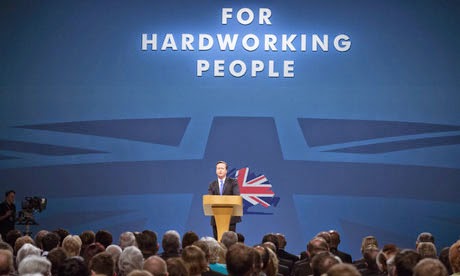 |
| UKIP's strategy at the election will be the same as that adopted by the Lib Dems in 1997 |
This is where UKIP come in. Nigel Farage has revealed he is targeting 12 constituencies at the General Election, but the true number is suspected to be 25. The seats are: Portsmouth South, where the sitting Lib Dem MP, Mike Hancock, has been disgraced, Eastleigh, where UKIP polled 27% in the 2013 by-election, South Thanet and Thurrock (South Thanet is where Nigel Farage is standing, in both South Thanet and Thurrock UKIP have been shown to be in the lead.) Boston, Great Grimsby, North Thanet, Forest of Dean, Aylesbury, East Worthing and Shoreham, Sittingbourne and Sheppey, and Great Yarmouth.
 |
| UKIP target seats |
Looking at the seats that UKIP are targeting, two things become clear.
- UKIP is targeting mostly Conservative seats (Only one is held by Labour)
- ALL of these seats are in the top 100 seats most likely to go UKIP (Based on Demographic Data, and research from Matthew Goodwin)
UKIP claims that it takes as many Labour votes as it does from the Tories, yet, looking at this list, it is clear that this is not the case. Most of the seats UKIP are targeting are Conservative held seats. However, one or two of the seats are Con-Lab marginals, and if UKIP and its claim that it takes significant Labour votes is correct, we should be able to see that in these seats.
In effect, UKIP are adopting the Paddy Ashdown strategy. Before the 1997 election, Paddy Ashdown, the Liberal Democrat leader, had realised that there was no use targeting Labour Party areas, as the Labour Party was going to win a massive landslide. The Government and its popularity had collapsed after the events of Black Wednesday, and, after the election of Tony Blair, Labour had a popular and potent leader capable of leading the party to a substantial victory (Tony Blair had a popularity rating of +65, the highest rating in history for a party leader until it was briefly broken by Nick Clegg in 2010). Therefore, Ashdown realised that he had to selectively target constituencies where there was a high likelihood of the Conservative Party losing.
He ensured that the Lib Dems targeted many seats due to local factors, which the Lib Dems have traditionally been very strong on due to their style of pavement politics, and targeted those constituencies which were most demographically suitable to the Lib Dems, e.g seats with a high number of Middle Class and Liberal professionals that had become disenchanted with John Major and his Tory Government. The seats targeted tended to be areas with high concentrations of Liberal Democrat Councillors, built up through hard work over the years. Through this effective targeting, Paddy Ashdown and the Liberal Democrats were able to win 46 seats, an increase of 28 seats from the previous election, despite a slight decline in their share of the vote. In effect, the Ashdown style is that you don't have a national campaign. You work out where you are strong, and throw everything at these seats. It is a style that has worked for the Liberal Democrats, and now the Kippers are adopting it, and it seems to be working for them, as they are pulling off spectacular by-election victories as the Liberal Democrats used to do. Indeed, in the majority of these constituencies, the Kippers have significant numbers of Cllrs on the Local Councils within them. Only time will tell if they are as successful as the Liberal Democrats were in 1997.








